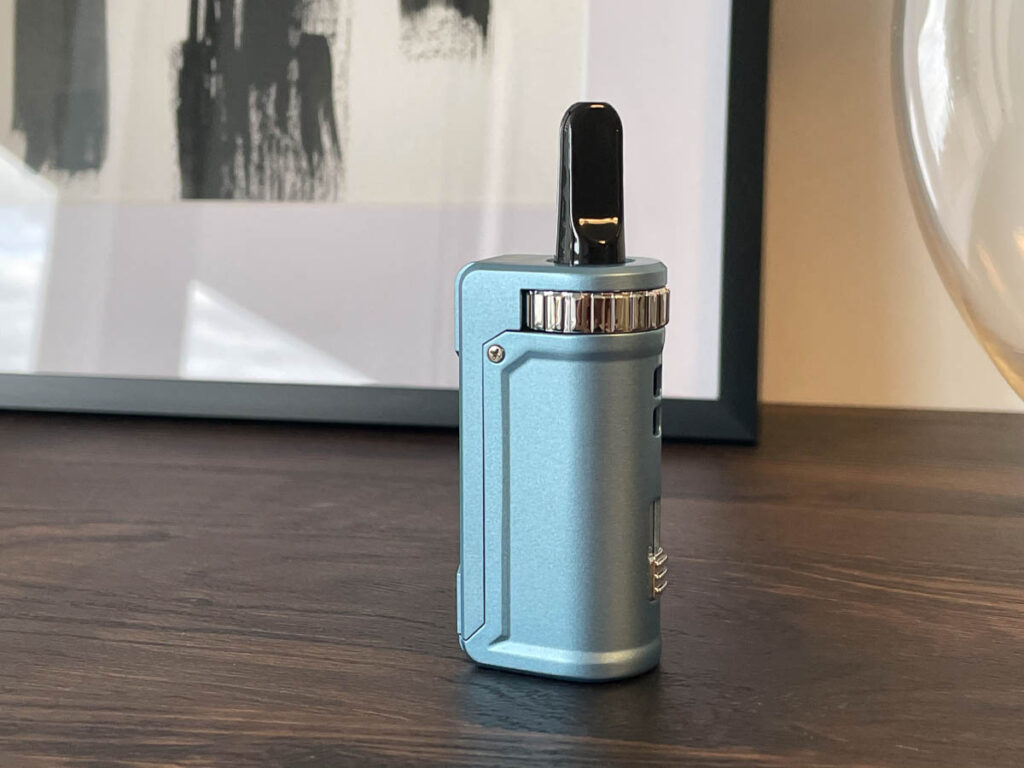
If you are ready to change your career, did you know you can become a nurse with a bachelor’s degree? This online program is called a bachelor’s-to-nursing degree.
While a traditional nursing degree takes four years to complete, the Accelerated Bachelor of Science in Nursing is a condensed program where you can earn your nursing degree in four or fewer semesters. This is because you do not have to retake the core classes that apply to every bachelor’s degree. If you are interested in how to become a registered nurse with a bachelor’s degree, the following information can help you discover the right path.
The Benefits Of Earning A Nursing Degree With Your Current Bachelor’s Degree
With the ease of working toward your nursing degree online, you can earn a new degree that offers many benefits, including:
An accelerated completion time: Because this nursing degree path does not require repeating general courses you have already taken for your current bachelor’s degree, you can finish an accelerated BSN in as little as sixteen months. You will know before you start if there are general course requirements you must fulfill before focusing on attaining your dream of becoming a nurse.
Lower cost: Since you don’t have to go back and start all over to earn a new degree, the cost of tuition will be lower as you work toward an accelerated Bachelor of Science in nursing. Plus, many schools offer federal aid and student loans to help with the expenses.
Ongoing career opportunities: Nursing and other medical professions are growing quickly. There will always be a need for skilled nurses, and you can work in a variety of settings, not just in a clinical hospital setting.
Expanded skills: As you study new information like anatomy and nutrition, your skills can expand to include more effective communication, problem-solving, teamwork, and increased knowledge. These skills will serve you well as you interact with patients, doctors, and other medical professionals.
More earning potential: Skilled nurses have a rewarding job outlook. The opportunities for advancement and increased earning power are vast. Since most nursing skills will transfer across medical disciplines, you can remain in your field while learning new skills.
How To Become A Registered Nurse With An Existing Bachelor’s Degree
There are some undergraduate prerequisites you will need from your current bachelor’s degree. These will depend on the specific school you choose to attend, but there are some common prerequisites to know:
- Anatomy and Physiology 1 with lab
- Anatomy and Physiology 2 with lab
- Organic or General Chemistry with lab
- Statistics
- Nutrition
- Microbiology with lab
- Developmental Psychology
Once you have established that the prerequisites have been completed, all coursework is online when you choose a hybrid Accelerated Bachelor of Science in Nursing degree. After you have completed the didactic part of the instruction, you will need to finish a ten-day lab instruction.
The clinical portion of your ABSN can be completed where you live, and the final requirement is passing your state’s licensure test. Your online school will help you secure a clinical placement and recommend how to review for your licensure test.
The Differences Between An Acute Care Nurse And A Public Health Nurse
It can be common not to know which type of nursing you would like to pursue at the start of your ABSN. However, as you attend school and complete nursing clinicals, you will have a clearer picture of where you would like to work.
Responsibilities of an Acute Care Nurse
An acute care nurse handles advanced nursing care for patients with serious heart problems, including heart attacks, heart diseases, and other critical health problems. As part of your job, you can be responsible for a range of tasks. You will be performing life-stabilizing actions like CPR when needed and managing the pain and stress of patients with medicines and non-medicine strategies. This will involve communicating with other medical personnel, especially doctors, to adjust a care plan for a patient and assess the responses of patients to a care plan. You will also need to document the vital signs and other data about the patient.
As an acute care nurse, you will be on the front lines of care for critically ill patients. Most nurses must have at least two years of experience in acute care in a hospital or another medical setting before they are qualified to take the test for acute care certification. Personal qualities an acute care nurse will need in this role are compassion, critical thinking, an ability to handle urgent situations calmly and efficiently, and good communication skills.
Responsibilities of a Public Health Nurse
If becoming a public health nurse sounds like something that would suit you, learning the role and responsibilities of this nursing specialist will help you decide. A public health nurse is, first and foremost, an educator since they would work to ensure the safety and health of a population.
As you advocate for positive health and habits for a group of people, a large part of your role would be to educate them and give them the tools they need to change their habits for better health. Many times, you would focus on people who are at-risk and underserved compared to others.
As a public health nurse, you would have a wide range of responsibilities. These could include educating groups to help them reduce disease and lower health risks and analyzing medical data to determine where the greatest health risks exist. Other responsibilities range from assisting patients in locating health support services to working with other public health officials to expand health care to more people. Public health nurses often work in underserved communities, where there are health disparities due to financial, social, and other constraints. As a public health nurse, you would identify and implement system interventions to improve those community members’ health and well-being while developing and nurturing ongoing relationships with those in the community.
Difference Between Acute Care And Public Health Nurses
The primary difference between an acute care nurse and a public health nurse is the focus of your responsibilities. The acute care nurse takes exceptional care of one very sick patient, while the public health nurse strives to aid and improve the lives of underserved groups in the community.
Other Career Opportunities for Nurses with a Bachelor of Science in Nursing
As with most there are many ways to utilize a certified nursing degree. You can work in a hospital, private practice, laboratory, school, and many other settings. Here are some additional nursing careers that might appeal to you.
Clinical Research Nurse
A clinical research nurse performs research on diseases and their life cycles. Some clinical research nurses also work directly with patients to test research theories. This can be a great way to see if possible solutions can slow the disease or help to end it. Clinical research nurses often work in a laboratory and serve as a liaison between patient volunteers and researchers. Their role is to monitor safety conditions by ensuring compliance with research protocols, secure consent from patients, and performing research to collect and analyze data before, during, and after treatment.
As a clinical research nurse, you could have a far-ranging impact on the health of an entire population. It is through research that new drugs are discovered and tested for efficacy. As part of the research process, you would also develop clinical procedures for testing the drugs on patients. You will be part of the ongoing education to help patients improve their health and prevent disease.
Qualities that characterize clinical research nurses are:
Decision-making: You will need to make complex decisions for the best patient care regarding experimental drug testing.
Problem-solving: There will often be unexpected complications or outcomes that require problem-solving to ensure the best care.
Communication: Clinical research nurses must be clear, effective communicators to the other medical staff that are part of the research and testing process and to the patient so they understand the implications of the drugs.
Analytical skills: At the heart of what a clinical research nurse does is data, so you must utilize analysis to collect and quantify data.
Informatics Nurse
Becoming an informatics nurse can be a perfect match for someone with a business or accounting background. As an informatics nurse, you would use data to communicate the technological processes that support nursing staff. The three crucial responsibilities of an informatics nurse are to communicate the “why’ behind new processes, validate data quality to show it supports the process, and to implement
new processes to streamline health initiatives.
With the advanced technology at our fingertips, healthcare processes can evolve and become more effective by using data to make essential decisions regarding patient care. The fundamental of what an informatics nurse does is to function as a clinical analyst.
You would focus on how technology can affect patient care by utilizing artificial intelligence, technology adoption, machine learning, information technology processes, and other advances that can streamline connections among all the medical personnel who are part of patient care. The role would also involve identifying point-of-care solutions for specific issues (i.e., glucometers for diabetes), public health reporting, external health information data, public health reporting, and more to maximize the ways technology can improve healthcare processes.
Another important role of an informatics nurse is to adjust the processes during a health crisis. One solution that arose from a time of crisis is telehealth visits. The shift from in-person to telehealth visits relieved the burden on healthcare personnel to see an influx of sick people by allowing them to assess and monitor patients virtually.
Travel Nurse
If the thought of traveling and working for specific periods in various cities appeals to you, you should consider becoming a travel nurse. These nurses take short-term contracts in high-need areas of the country.
Rural areas, as well as big cities, can experience a shortage of qualified nurses, and that is where a travel nurse fills in. You work for a travel nurse agency that secures contracts in places you are open to traveling. Often, there are more patients than nurses in these facilities, and your role is to relieve some of the burdens on existing medical personnel.
As a travel nurse, you should expect to jump in and complete nursing duties with very little orientation or instruction, and you will likely work in fast-paced, chaotic environments. Sometimes you can choose the nursing unit, while other times, you will fill in where you are needed. Travel nurses will need to possess the following qualities.
Adaptability: One of the main characteristics of a travel nurse is the ability to adapt to ever-changing circumstances. You must be ready to learn new systems and technologies where you contract to work.
Resilience: While some nursing contracts are easy, most are difficult and complex due to staff shortages. Being resilient helps you withstand unexpected challenges and adapt to a new work environment.
Flexibility: Travel nurses might work six weeks on one side of the country and fourteen weeks on the other. Depending on where you accept a contract, you should be prepared to move often.
New environments: Many times, the place you end up working has pain points and other shortages that require you to adapt to new environments on the go. You will also have to complete your job without adequate resources.
Labor and Delivery Nurse
A labor and delivery nurse has a vital role in supporting the doctor and the expectant mother. In addition to administering medicine and watching the vitals of the laboring mother, the labor and delivery nurse is a crucial connection for the expectant parents. You would be available to answer their questions and soothe their fears.
Many labor and delivery nurses are part of the birthing process and continue to assist new mothers afterward. During the birthing event, you assist and monitor when the mother is in active labor, you also provide support to the doctor during the actual birth. A labor and delivery nurse should also be prepared to assist with complications and have all supplies ready for the care of the baby after its birth.
After the birth of the baby, you will pay close attention to the mother and baby and be an active listener. In addition to monitoring the vitals and interactions between the mother and baby, you will communicate any concerns to the doctor. Many new mothers who choose to breastfeed need help from a lactation specialist, so you will ensure the specialist visits the mother.
You can further your skills by becoming a neonatal nursing specialist. In some clinical settings, this position requires additional certification. Your role would include the following: handling assisted ventilation for the baby, post-operative care for the baby, and critical care for high-risk infants.
Operating Room Nurse
As an operating room nurse, you provide pre, during, and post-operative care for surgery patients. You serve a vital role in assisting the surgeon(s) during the operation. In addition to an in-depth understanding of surgical procedures, your duties would include collecting supplies needed for surgery, ensuring the operating room is sterile, assisting with positioning patients on the operating table, assisting other staff during the procedure, and be responsible for immediate post-op care. In addition, operating room nurses are the point of contact for families regarding any concerns they have and post-surgery instructions.
Home Health Nurse
When you become a home health nurse, you visit patients in their homes to administer care. You will see a variety of patients, such as elderly persons, people recovering from surgery, people who have been in an accident, new mothers, and many others.
As part of your visit, you will perform the following duties:
- Assess the patient’s health and ensure the doctor’s plan of care is clear.
- Monitor the patient’s recovery, response to medications, and mobility.
- In some cases, assist with bathing, wound care, and other daily living needs.
- Draw blood for lab tests.
- Record details of physical characteristics.
- Answer any questions and concerns of the patient and their family.
There are many opportunities for skilled nurses with an accelerated bachelor of science degree in nursing, and the nursing field continues to grow.







